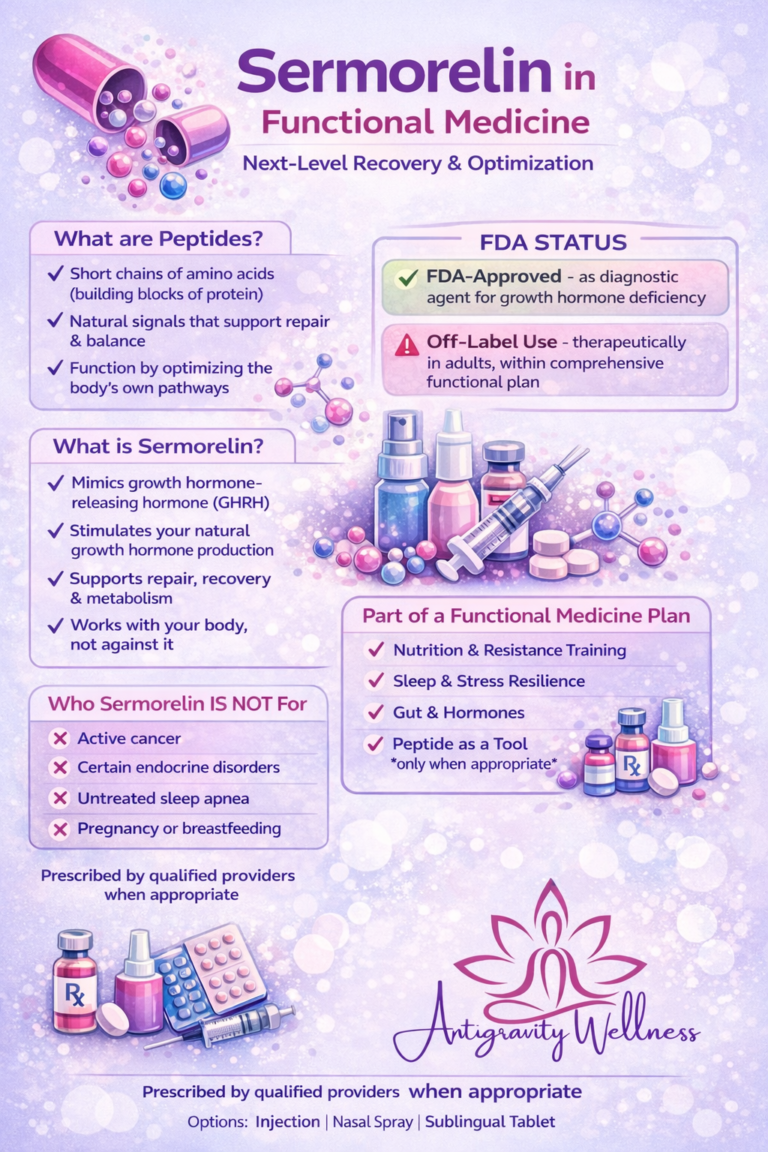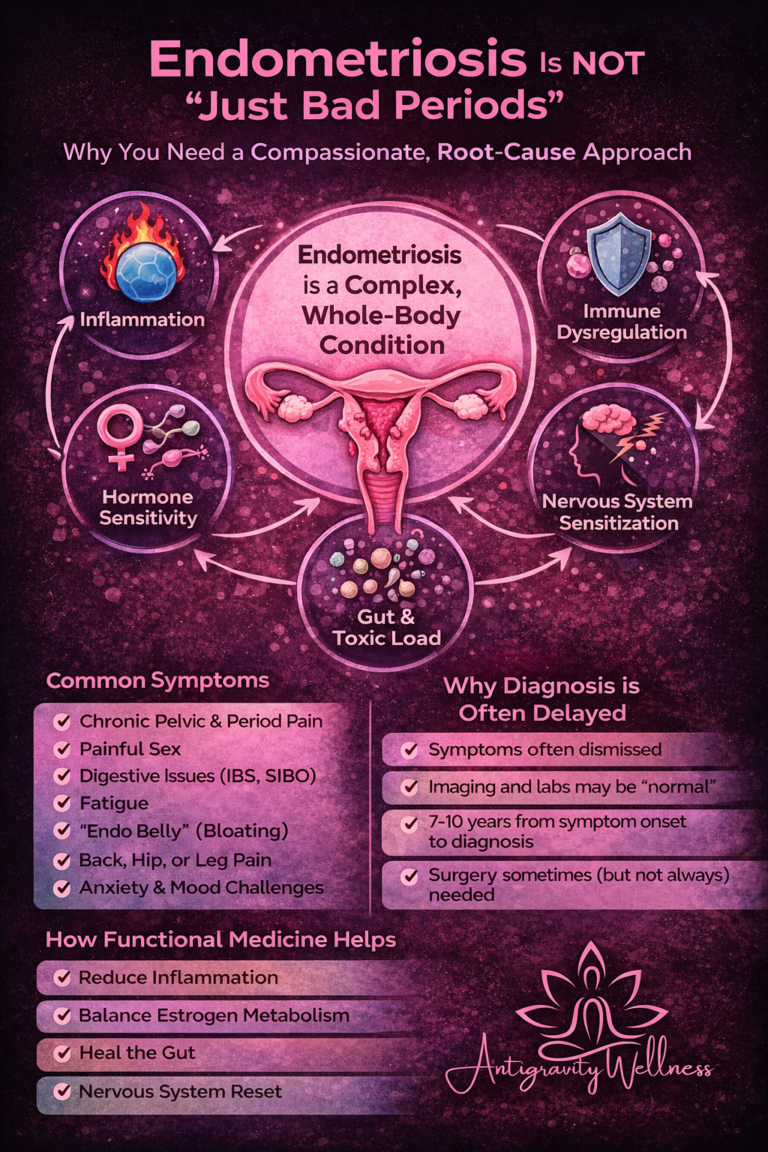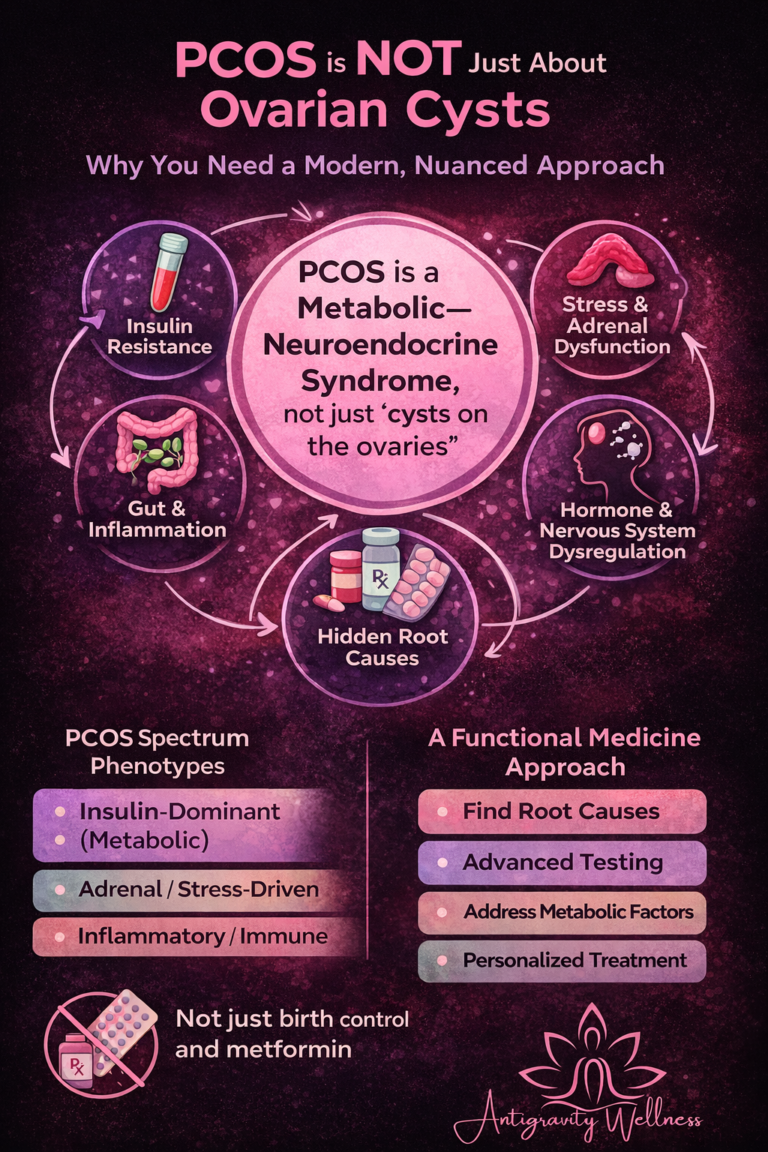
😓 It Started With a 3 a.m. Wake-Up Call…
Jen had always prided herself on being the strong one. She managed her household, ran a successful business, and still somehow made time for workouts, birthday parties, and PTA meetings.
But lately? Something had shifted.
She found herself wide awake at 3 a.m., heart pounding for no reason. She was snapping at her kids, forgetting meetings, and craving sugar like it was her lifeline. Her jeans didn’t fit right anymore. Her doctor ran labs—“all normal.”
Jen knew better. This wasn’t just stress. This was something deeper.
If you’ve ever felt this way, keep reading—because you’re not alone. And you’re not crazy.
🧠 Why Does Stress Hit So Hard in Your 40s?
If you’re a woman in your late 30s or 40s and it feels like your body is working against you, you’re not imagining it.
Stress impacts everyone, but during perimenopause, it becomes a hormonal time bomb.
Here’s why: Estrogen and progesterone begin to fluctuate and decline as you enter midlife. These hormones usually help buffer your stress response and regulate your nervous system. When they drop, you become more sensitive to cortisol, your main stress hormone.
Which means chronic stress affects you more intensely now than it did 10 years ago.
🔁 The Stress-Hormone Domino Effect
Here’s how it typically unfolds:
- Stress → Cortisol Spike
Your adrenals release cortisol in response to any stressor—mental, emotional, or physical. - Chronic Stress → Hormonal Chaos
Too much cortisol suppresses progesterone, DHEA, and thyroid hormones. This disrupts your entire hormonal system. - You Feel It As…
- Afternoon energy crashes
- Insomnia or 3 a.m. wake-ups
- Anxiety or irritability
- Brain fog and memory slips
- Increased belly fat
- Sugar and salt cravings
- Feeling “off,” “wired but tired,” or burned out
- Afternoon energy crashes
😩 Why Most Women Get Misdiagnosed or Dismissed
Many women go to their provider with these concerns and hear:
- “Your labs are normal.”
- “It’s probably just stress.”
- “This is part of aging.”
But feeling exhausted, snappy, foggy, or overwhelmed every day isn’t normal—it’s common. And it’s often a sign of adrenal dysregulation and hormone imbalance. You deserve more than a shrug and a handout. You deserve answers.
🔧 5 Ways to Support Your Stress Response (Starting Now)
Here are five science-backed ways to begin calming your system and restoring balance:
1. Balance Blood Sugar to Balance Cortisol
Start your day with protein and eat every 3–5 hours. This stabilizes energy and prevents cortisol spikes.
2. Prioritize Sleep Like It’s a Prescription
Quality sleep is adrenal repair time. Use magnesium glycinate, reduce screen time, and create a calming bedtime routine.
3. Daily Nervous System Support
Try breathwork, nature walks, light stretching, or simply 5 minutes of silence. These reset your fight-or-flight response.
4. Use Adaptogens Mindfully
Herbs like ashwagandha, rhodiola, and holy basil may help regulate your stress hormones—but only when used with a plan.
5. Stop Blaming Yourself
If you’re feeling “off,” it’s not because you’re not trying hard enough. It’s your body asking for support. Listen with compassion.
👩⚕️ Case Study: From Burnout to Balance
Meet Kara, a 45-year-old woman who came to my clinic emotionally drained and physically exhausted. She was waking up at 3:00 a.m. every night, losing her temper over little things, and couldn’t seem to shake the brain fog.
Her primary care labs? “Normal.”
But we dug deeper.
Her functional hormone panel showed low progesterone, flattened cortisol rhythm, and low DHEA—classic signs of adrenal dysregulation.
We focused on adrenal nourishment, nervous system resets, and hormonal support tailored to her unique needs.
Within two weeks, she was sleeping through the night. By eight weeks, she had energy again. At 12 weeks, she said, “I feel like myself again—for the first time in years.”
This is the power of personalized hormone care.
📞 Ready to Feel Like You Again?
If you’re nodding along to Kara’s story or Jen’s 3 a.m. wake-ups, I want you to know:
You don’t have to keep guessing. You can get answers—and a plan.
If you live in Washington or Oregon, I invite you to book a Brief Initial Consult Call with me to get started.
It’s the cost of a copay, and it’s your first step to clarity, calm, and hormone harmony.
👉 Click here to book your consult.
💬 Final Thoughts
You’re not lazy. You’re not broken.
You’re not imagining things.
Your body is responding to real stress, real hormone shifts, and real demands. But with the right support, it can also heal.
Let this be the moment you stop blaming yourself—and start working with your body, not against it.
You’ve got this. And I’ve got you.
—
Dr. Nicole Smith, DNP, FNP-C, ONP-C, CPT
Founder, Antigravity Wellness
📚 References
- Vgontzas, A. N., et al. (2003). Chronic insomnia is associated with hypercortisolemia. The Journal of Clinical Endocrinology & Metabolism, 86(8), 3787–3794. https://academic.oup.com/jcem/article-abstract/86/8/3787/2848953
- Laughlin, G. A., & Barrett-Connor, E. (2000). Sexual dimorphism in the influence of advanced aging on adrenal hormone levels: The Rancho Bernardo Study. The Journal of Clinical Endocrinology & Metabolism, 85(10), 3561–3568. https://pubmed.ncbi.nlm.nih.gov/11061502/
- Raison, C. L., & Miller, A. H. (2003). When not enough is too much: the role of insufficient glucocorticoid signaling in the pathophysiology of stress-related disorders. American Journal of Psychiatry, 160(9), 1554–1565. https://doi.org/10.1176/appi.ajp.160.9.1554
- Daniel J Drucker. (2003). Glucagon-like peptides: regulators of cell proliferation, differentiation, and apoptosis. https://pubmed.ncbi.nlm.nih.gov/12554744/
⚠️ Medical Disclaimer
This blog post is for informational purposes only and is not intended as a substitute for professional medical advice, diagnosis, or treatment. Always seek the advice of your licensed healthcare provider with any questions you may have regarding a medical condition. Never delay seeking medical advice or treatment because of something you read here.




